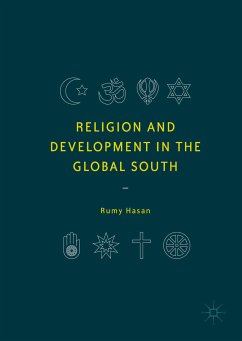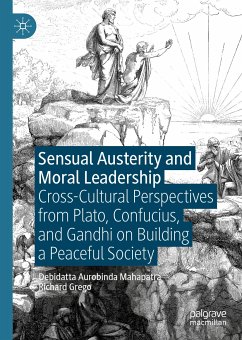
The Cultural Production of Social Movements (eBook, PDF)
Versandkostenfrei!
Sofort per Download lieferbar
96,95 €
inkl. MwSt.
Weitere Ausgaben:

PAYBACK Punkte
48 °P sammeln!
The Cultural Production of Social Movements offers a theory of cultural practices, protest tactics, strategic planning and deliberation, and movement organizational structures: "ideological contention." It is a theory of ideology "from below." The Cultural Production of Social Movements shows how conflicts-both with external political forces and disagreements, dissensus, and the decision-making process internal to social movements-produce knowledge and meanings that, in turn, impact upon and change the practices that contribute to how social movements are structured and organized. The Cultural...
The Cultural Production of Social Movements offers a theory of cultural practices, protest tactics, strategic planning and deliberation, and movement organizational structures: "ideological contention." It is a theory of ideology "from below." The Cultural Production of Social Movements shows how conflicts-both with external political forces and disagreements, dissensus, and the decision-making process internal to social movements-produce knowledge and meanings that, in turn, impact upon and change the practices that contribute to how social movements are structured and organized. The Cultural Production of Social Movements theorizes the relationship between consciously held superordinate ideas, the changing composition of progressive and oppositional social struggles, and the social worlds they hope to inhabit. Analyzing the Black Panther Party, specifically Kathleen Cleaver's break with the Student Non-violent Coordinating Committee and her contributions to the Party, Operaismo (or Workerism) in Italy and the relationship between shifting organizational strategies, inventive tactics, and novel and expansive ways to theorize class struggles, and the communal composition of "Worker-Recovered Enterprise Movements" in contemporary Argentina, this book shows how movement ideologies change and how meanings structure organizations, mobilizations, and futures. In The Cultural Production of Social Movements ideology is neither a static set of principles, nor is an unconscious orientation towards power and governance. Rather, it is the contentious, democratizing, and deliberative processes-which become realized as tactics in protests, struggles, defeats, and victories-that makes the relationship between movements, and what they "mean" conscious to its participants.
Dieser Download kann aus rechtlichen Gründen nur mit Rechnungsadresse in A, B, BG, CY, CZ, D, DK, EW, E, FIN, F, GR, HR, H, IRL, I, LT, L, LR, M, NL, PL, P, R, S, SLO, SK ausgeliefert werden.












